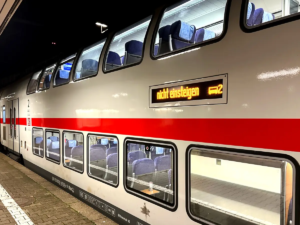For many, in times of energy crisis and inflation, they are the only way to still pay bills: overdraft facilities. But now consumer advocates want to limit this current account overdraft.

A survey has shown that 14 percent of all those surveyed aged 18 and over have used the option of an overdraft facility in the last three months – i.e. overdrawn the account. After all, that is every seventh respondent. The increased cost of living is the main reason for an overdrawn account. However, overdrawing the account is associated with expensive overdrafts. The Federation of German Consumer Organizations (vzbv) sees this as a risk of over-indebtedness and calls on politicians to take action. The goal: to limit the overdraft facility.
OVERDRAFT FACILITY: PROMOTION OF SHORT-TERM USE REQUIRED
The increased cost of living poses a risk of over-indebtedness for consumers and “is driving more and more people to take out an overdraft facility,” says Ramona Pop. The former Berlin senator heads the vzbv. Disadvantage of the overdraft facility: They are much too expensive to compensate for financial bottlenecks in the medium or long term. Politicians must act here and protect consumers from the overdraft facility becoming a cost trap,” said Pop.
According to a survey by the financial magazine Biallo at the end of 2022, the average interest rate was 10.07 percent. that is almost twice as high as consumer loans with a fixed interest rate of 1 to 5 years. These comparatively high interest rates lead to considerable costs with long-term use. The vzbv calls on the federal government to only promote short-term use of the overdraft facility. Unjustified costs should be avoided and effective help in the event of over-indebtedness should be ensured. Among other things, a limit on the overdraft facility and a ban on compound interest are needed to prevent interest rates from exploding. Easier access to free debt counseling is also necessary.
Further results of the Forsa survey commissioned by the vzbv show that this appears to be necessary. According to this, 9 percent of those surveyed do not see themselves in a position to be able to bear the increased cost of living in the long term. You would have to go to school. 14 percent of those asked in this representative survey assume that they will only be able to balance their account again after more than six months.


